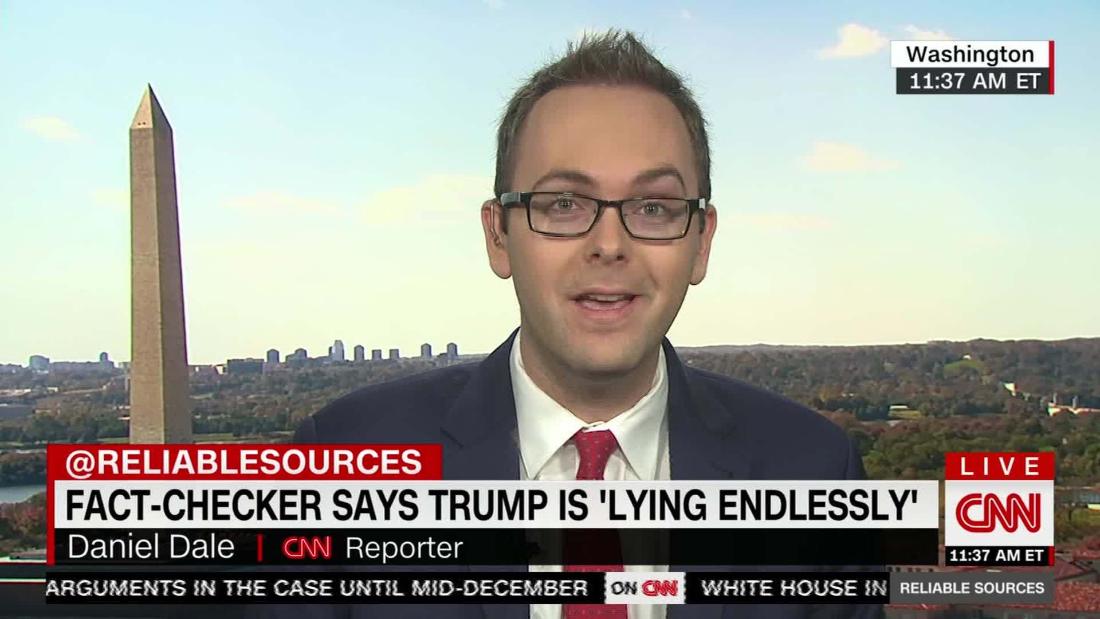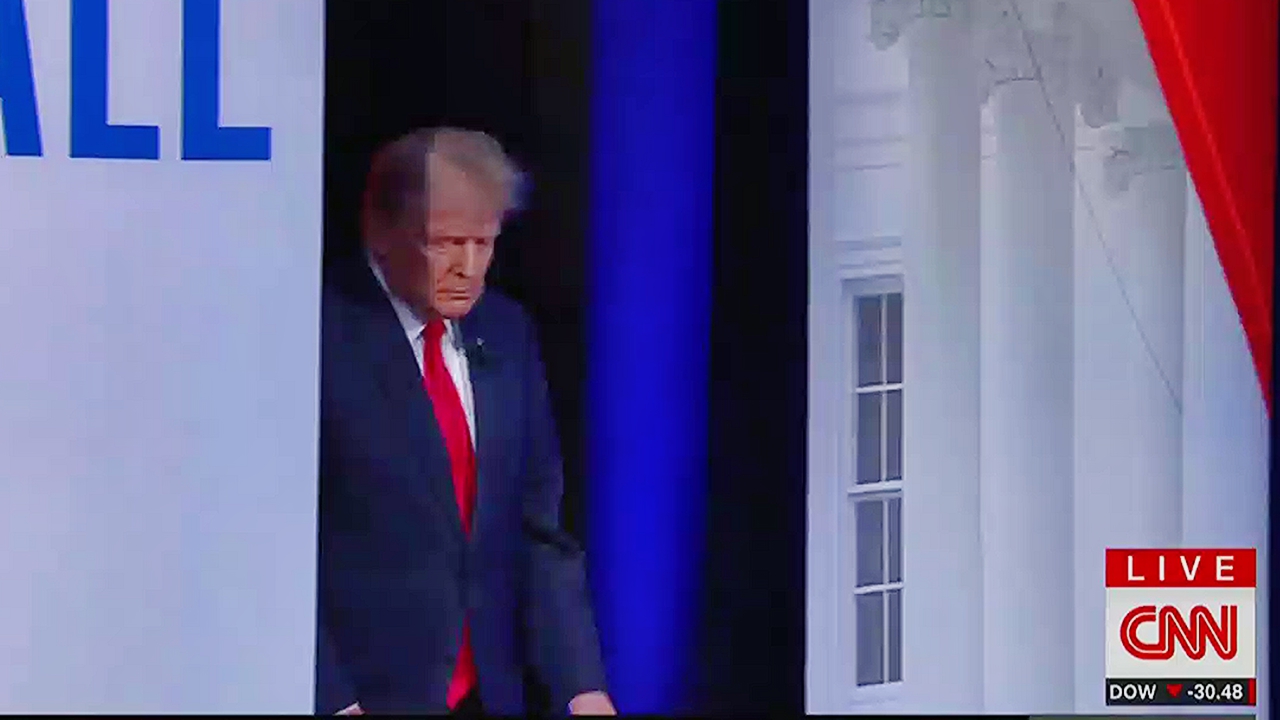Is truth now a casualty in the political arena? Evidence suggests a disturbing trend: the consistent propagation of demonstrably false statements by prominent figures, eroding public trust and distorting reality.
The echoes of untruth resonate with a particular force when emanating from those vying for the highest office. Former President Donald Trump, the presumptive Republican presidential nominee, has become synonymous with a relentless stream of misinformation, a pattern that has been repeatedly scrutinized and debunked by fact-checkers across the media landscape. His pronouncements, delivered in interviews with Time magazine, at rallies, debates, and even in official settings like cabinet meetings, paint a picture of a leader seemingly detached from verifiable facts, prioritizing narratives over reality.
To understand the scope and nature of these claims, let's delve into the specifics:
- Ryan Paeveys Wife Who Is He Married To
- Unveiling The Towering Presence Of Vincent Price His Stature Revealed
| Category | Details | Example | Source |
|---|---|---|---|
| False Claims | In interviews with Time magazine, Trump made at least 32 false claims. | Specific instances, details need to be added based on the original sources, example: "Claiming a specific policy was enacted during his first term when it was not." | Time Magazine, CNN Fact Checks (references to be included here) |
| Debate Deceptions | At a Thursday debate, Trump made more than 30 false claims. Many of these were previously debunked. | Examples: "Claiming that a specific economic indicator had improved when it hadn't," "Accusing his opponent of a specific action without evidence." | CNN, The Washington Post Fact Checker (references to be included here) |
| Repeat Offenses | Trump frequently repeats claims that have been debunked years ago | Examples: "False claims about the 2020 election results," "Inaccurate assertions about US relations with other countries". | CNN, PolitiFact, The New York Times (references to be included here) |
| FEMA & Migrants Claim | Trump repeated a claim about FEMA money and migrants, even after it was debunked. | Specific details of the debunked claim need to be included here. | News Articles and Fact Checks (references to be included here) |
The consistent repetition of these falsehoods raises critical questions. Is it a deliberate strategy to manipulate public opinion? Is it a sign of a disconnect from reality? Or is it simply a reflection of a political environment where truth is increasingly regarded as subjective?
The impact of such behavior is far-reaching. It erodes public trust in institutions, making it difficult for citizens to distinguish between fact and fiction. It undermines the credibility of the media, which is tasked with the challenging duty of separating truth from falsehood. And, perhaps most alarmingly, it creates a climate where accountability is diminished, and leaders can operate with impunity, shielded by their devoted supporters who accept their versions of events.
Further complicating matters is the tendency of these false claims to be amplified by partisan media outlets and social media platforms. This creates echo chambers where misinformation thrives, reinforcing existing biases and preventing individuals from engaging with alternative perspectives. In this environment, the pursuit of truth becomes a constant struggle, and the very foundations of informed decision-making are threatened.
The trend toward dishonesty is not limited to any one individual or political party. However, the frequency and scale of Trumps false statements make him a particularly significant case study. His pronouncements, often delivered with conviction and a flair for drama, command attention and influence millions. The media outlets consistently report on Trump's statements, and consistently debunk them, however, the lies continue to be repeated, showing the power of the lies. The consequences of believing the lies have yet to be fully realized.
Here are some additional examples, from past events:
| Event | Falsehoods | Context | Source |
|---|---|---|---|
| Thursday Debate | Over 30 false claims, many previously debunked. | Assertions on various topics, including economic data, foreign policy, and personal attacks. | CNN, Other major news outlets. |
| Cabinet Meeting | Numerous false claims during his first cabinet meeting of his new administration | Assertions regarding aid to Ukraine and other policy matters. | Reported by various news sources. |
| Sunday Evening Rally at Madison | Repeated false claims about immigration and other topics. | Claims made to energize supporters at a political event. | News reports and fact-checking websites. |
| Pennsylvania Speeches | At least 40 separate false claims in two Pennsylvania speeches. | False claims made about recent policies of the current government. | Reported by various news sources. |
While some of Trump's false claims have been consistent throughout his career, others are more recent. These evolving narratives highlight the dynamic nature of misinformation and the challenges of staying informed in a rapidly changing information landscape.
The persistence of Trump's dishonesty raises the question of accountability. Are there consequences for repeatedly misleading the public? And if not, what mechanisms can be put in place to ensure that political discourse is grounded in reality? The answers to these questions are critical for preserving the integrity of democratic processes and safeguarding the ability of citizens to make informed decisions.
Fact-checking organizations and news outlets play a crucial role in exposing these falsehoods. Their work, however, is often reactive, focusing on debunking claims after they have already been made and disseminated. A more proactive approach is needed, including educational initiatives that promote media literacy and critical thinking skills. This is essential to enable the public to evaluate information effectively and resist the allure of misinformation.
The implications of this pervasive dishonesty extend beyond politics. It affects public health, national security, and even international relations. When leaders are willing to distort facts, it becomes difficult to address pressing challenges such as climate change, pandemics, and global conflicts. Decisions based on misinformation can have devastating consequences.
The situation demands a concerted effort from all stakeholders: journalists, educators, policymakers, and the public at large. It is crucial to support independent journalism, promote media literacy, and hold those in positions of power accountable for their words. Only through a commitment to truth can we hope to build a society that is resilient to deception and capable of addressing the challenges of the 21st century.



Detail Author:
- Name : Mr. Demario Daugherty Jr.
- Username : hermann.schowalter
- Email : qdeckow@ratke.com
- Birthdate : 2004-05-30
- Address : 201 Metz Ranch Edythehaven, PA 84366-9692
- Phone : +1.815.400.8166
- Company : Kertzmann PLC
- Job : Welding Machine Operator
- Bio : Aut nihil inventore nulla et ab. Ea quia at ducimus ipsum fugit. Iste ad minima reiciendis et aliquam commodi voluptas. Quod qui quasi in neque qui fuga fugit.
Socials
twitter:
- url : https://twitter.com/walker_mante
- username : walker_mante
- bio : Alias quis placeat enim sint sunt. Consequatur voluptatibus vel ut dolorum ipsum esse. Necessitatibus reiciendis quo occaecati cupiditate ratione accusamus.
- followers : 3745
- following : 1589
facebook:
- url : https://facebook.com/walker.mante
- username : walker.mante
- bio : A ut minima nisi aut rem omnis est. Cumque ea ut qui rerum velit ut et placeat.
- followers : 2596
- following : 1898
linkedin:
- url : https://linkedin.com/in/walker7761
- username : walker7761
- bio : Pariatur saepe nihil provident minima optio.
- followers : 623
- following : 538
tiktok:
- url : https://tiktok.com/@mante1974
- username : mante1974
- bio : Blanditiis dolor ratione enim dolor odio est.
- followers : 290
- following : 298